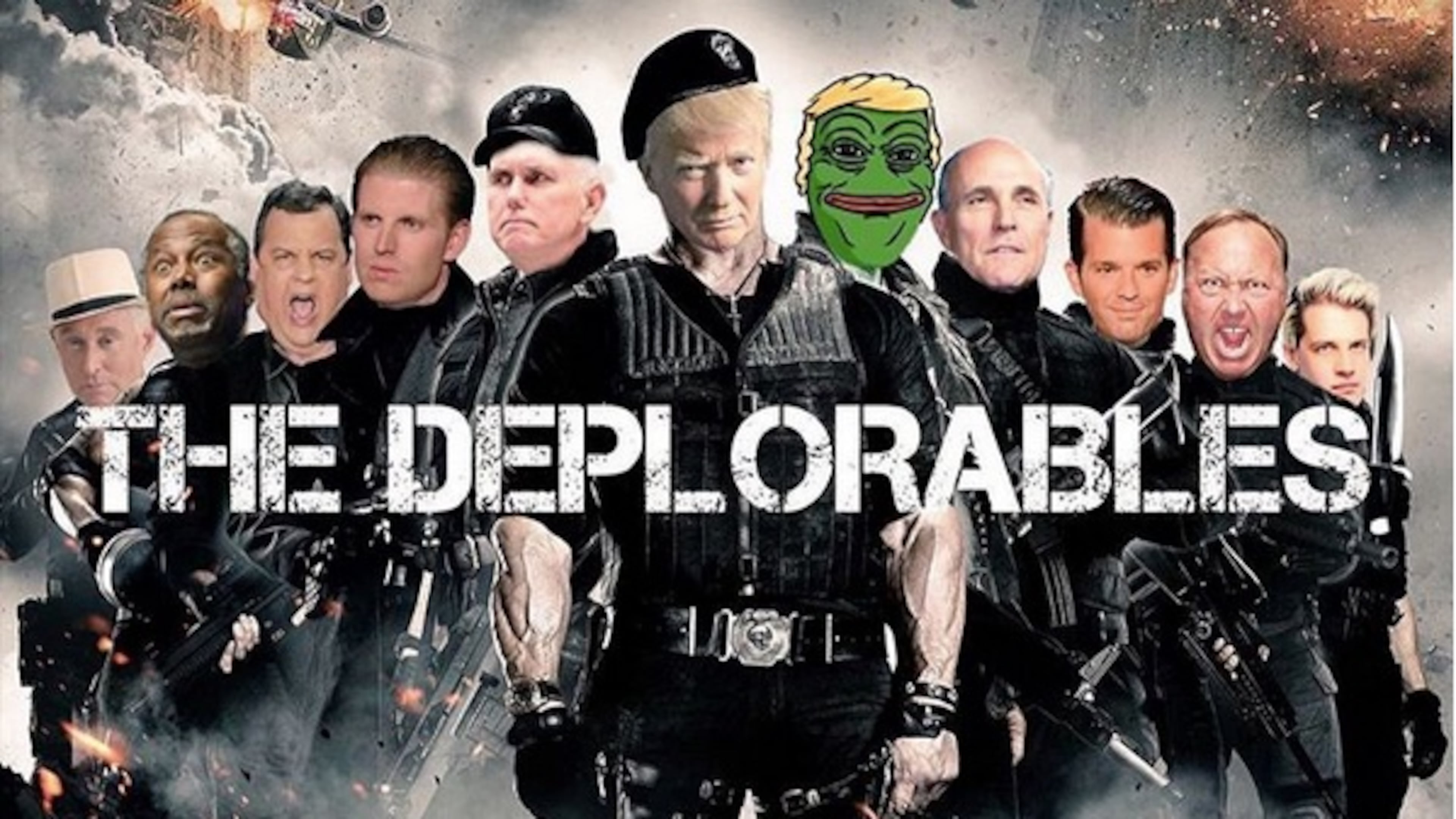Trump's 'basket of deplorables' is all too real

"To just be grossly generalistic, you can put half of Trump supporters into what I call the basket of deplorables," Hillary Clinton said Friday night, before a health scare knocked her off the campaign trail temporarily. "Right? Racist, sexist, homophobic, xenophobic, Islamaphobic, you name it."
Clinton's remark immediately drew harsh condemnation from some Republicans, which I found rather amusing. Unless you yourself are "racist, sexist, homophobic, xenophobic, Islamaphobic," then Clinton wasn't talking about you and you have no cause to feel offended. Clinton herself later apologized, but only to a point. Her mistake, she said, was in making a gross generalization and by putting the size of that contingent as large as a "half" of Trump's support.
However, she did not withdraw the core of her observation, and for a very good reason: It's true.
In fact, it's so obviously true that a lot of non-bigoted conservatives have publicly acknowledged and condemned it, often using terms more cutting than those used by Clinton. When Donald Trump claimed that an Indiana-born judge of Mexican descent was not qualified to judge his legal case, House Speaker Paul Ryan called it "the textbook definition of a racist comment." When Trump refused to condemn David Duke and other white supremacists, feigning ignorance of their cause, Sen. Marco Rubio stepped in, proclaiming that “We cannot be the party that nominates someone who refuses to condemn white supremacists and the Ku Klux Klan.”
"I do think that (Trump) honestly believes that large swaths of conservatives are bigots, and he wants to pander to them, and that he doesn’t want to offend them," says Jonah Goldberg of National Review. "I think that explains entirely why he was so reluctant at first to condemn David Duke. It wasn’t because he likes David Duke. He thinks a lot of his followers like David Duke."
"Mr. Trump's 'Mexican' slur about federal Judge Gonzalo Curiel is the most shameful word uttered by a major presidential candidate since Dixiecrat Strom Thurmond thundered in 1948 against the 'Nigra race,'" wrote conservative columnist Bret Stephens in the Wall Street Journal. "As in 1948, Mr. Trump is appealing to constituents who have stuffed themselves on a diet of bad statistics and misleading anecdotes—people who fancy themselves victims but behave like bigots."
Trump's appeal to bigots and bigotry is also not a secret to the American people at large. In the most recent ABC News/Washington Post poll, for example, just 36 percent of those polled said Trump isn't biased against women and minorities. Sixty percent believed that he is indeed biased against those groups, with 48 percent saying they believed strongly that Trump is a bigot. (Also, see Reuters/Ipso poll below)
Women certainly recognize the misogyny within the Trump campaign. When the most popular t-shirts for sale at Trump rallies call Clinton a "bitch" in some form or other, when Trump himself has a long history of misogynistic, sexist remarks, it's a hard fact to miss. And when the most recent polls show Trump doing 21 points better among men than among women -- double the advantage that Mitt Romney had -- then yes, gender is clearly an issue, and Clinton is far from alone in seeing it.
As you can see above, it's also worth noting that Duke and other alt-right white supremacists have been drawn to the Trump campaign in ways that they were not when the GOP nominee was Mitt Romney or John McCain. That tells you a lot. These are people who are by definition well-attuned to racist appeals -- they know it when they see it -- and they pronounce themselves almost gleeful about what they see and hear from Trump. They want to be a part of it, and they think they are.
On this point at least, I will defer to their judgment.
--------------------
